 W
WIchiro Agata is the guitarist for the Japanese noise rock band Melt-Banana. Agata is known particularly for his furious stage antics, jumping and constantly moving around, and exceedingly unique approach to playing the guitar which involves extended technique heavy use of effects pedals and guitar slides resulting in sounds not easily attributed to the guitar.
 W
WAgata Morio is a Japanese folk rock singer-songwriter and actor. He also directed three films.
 W
WUmeko Ando was an Ainu singer and mukkuri player. Her participation Oki Kano's second album Hankapuy, helped her gain recognition. She recorded several albums, including her solo debut album, Ihunke, produced by Oki in 2001, that was praised by critics and artists alike, and many music publications in Japan declared it the best world music album of the year. It was followed by her second studio album, Upopo Sanke, in 2003, with Chikar Studio, which gained worldwide attention.
 W
WTaimei Kawai, better known by his stage name Carpainter, is a Japanese electronic musician.
 W
WRokusuke Ei was a Japanese lyricist, composer, author, essayist, and television personality of Chinese descent.
 W
WTakeaki Maruyama, better known by his stage name Goth-Trad, is a Japanese dubstep musician. He began composing dubstep in 2005 after being inspired by Wiley's "Morgue". He has produced five albums, the latest of which - Psionics - is due for release in September 2016. His last album New Epoch was released on Mala's Deep Medi label. Goth-Trad also runs an underground music night in Shibuya, Tokyo, called "Back To Chill". He has also experimented with other genres and styles in more recent years.
 W
WYuko Hara is the keyboardist for Southern All Stars. She is also a vocalist and writes many of her own songs.
 W
WHikaru Kaihatsu also known as Hikakin is a Japanese YouTuber and the co-founder of UUUM, a Japanese multi-channel network. A video of his Super Mario Bros. beatbox went viral in 2010, reaching over 3.8 million views by mid-September of that year. He, alongside fellow Japanese YouTuber Megwin, quit their day jobs in 2012 to focus entirely on their channels. He also collaborated with Gille, appearing in her promotions for her single "Try Again", where it is stated that he is one of the most popular Japanese YouTubers.
 W
WYoshiaki Hoshi , born in Wakayanagi, Miyagi, Japan, was a Japanese musician best known for his band Himekami.
 W
WKiyoshi Ijichi is the drummer of the Japanese rock band Asian Kung-Fu Generation. Ijichi credits the origin of his drumming ability to playing in marching bands in junior high.
 W
WShinichi Ishihara is a Japanese singer, seiyū and actor from Yamanashi Prefecture. He is famous for singing the theme songs of Guyver, Kamen Rider Agito and Kyuukyuu Sentai GoGo-V, among other theme songs as well as the entire soundtrack to Juukou B-Fighter.
 W
WIchiro Ito is a guitarist in the Japanese rock band Every Little Thing. Ito also works in composition and, sometimes, arrangement of some of Every Little Thing's songs.
 W
WRyo Kawakita , also known as Maximum the Ryo, is the guitarist, songwriter and singer of Japanese metal band Maximum the Hormone.
 W
WKazuhito Iwaike , known exclusively by his stage name K.A.Z, is a Japanese musician and songwriter. He is known for his work with Oblivion Dust, hide with Spread Beaver and Vamps.
 W
WKensuke Kita is the lead guitarist and backing singer of the Japanese rock band Asian Kung-Fu Generation. Kensuke met fellow band members Masafumi Gotō and Takahiro Yamada while attending a music club of Kanto Gakuin University. The three formed Asian Kung-Fu Generation in 1996, with drummer Kiyoshi Ijichi joining the band shortly after.
 W
WNobu Kōda 幸田延 (1870–1946) was a Japanese composer, violinist, and music teacher. She was one of the first Japanese women to study music overseas. She studied at the New England Conservatory. She later studied in Europe. She was the sister of Kōda Rohan.
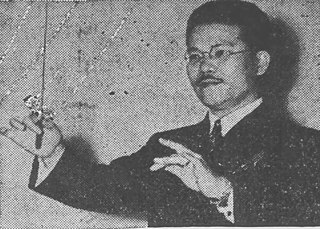 W
WKoga Masao was a Japanese composer, mandolinist, and guitarist of the Shōwa era who was dubbed "Japan's Irving Berlin" by Universal Press Syndicate. His melancholy style, based upon Nakayama Shimpei's yonanuki scale, was popularly known in Japan as "Koga melody" . He was awarded the Order of the Sacred Treasure and the People's Honor Award for his contributions to Japanese music.
 W
WToshinori Kondo was a Japanese avant-garde jazz and jazz fusion trumpeter.
 W
WYūji Koseki was a Japanese ryūkōka, gunka, march, fight song and film score composer. His real name was also Yūji Koseki, but its kanji was 古關 勇治.
 W
WYuriko Kuronuma is a Japanese violinist.
 W
WAkira Kushida , is a Japanese vocalist who is well known for his work in the soundtracks for anime and tokusatsu productions, most notably Taiyou Sentai Sun Vulcan, Kinnikuman, and Uchuu Keiji Gavan. His nickname from his fans is Kussy . His real given name is Akira .
 W
WIwamoto Mari was a Japanese violinist.
 W
WMasayo Sawada , better known by her stagename Sister MAYO, is a Japanese singer. She is a member of the Columbia Music Entertainment duo Cyber Nation Network, and a vocalist in Project.R which performs many theme songs for the Super Sentai series, some have reached the top ten in Oricon's charts. Her best-known songs as a soloist have been the opening theme of Haré+Guu and the ending theme of Mahou Sentai Magiranger. She is the younger sister of heavy metal musician Taiji, with whom she was in the rock band Otokaze.
 W
WMichiya Mihashi, born Michiya Kitazawa in Kamiiso, Hokkaidō, was a famous enka singer in postwar Japan. Along with Hachiro Kasuga and Hideo Murata, he was regarded as one of the most notable singers to have established the genre enka.
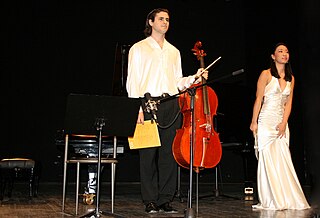 W
WYoko Misumi is a Japanese classical pianist.
 W
WToshio Nakanishi , also known by the pseudonyms Tycoon To$h or Typhoom Tosh, was a Japanese musician and graphic designer who was best known as the founding member of new wave band Plastics in 1976. He was initially a part of the technopop fever in Japan and later acted as a pioneer of the Japanese hip hop scene with his band Major Force.
 W
WJohn Kaizan Neptune is an American player and builder of the shakuhachi. He is known particularly for his use of the instrument in non-traditional contexts, such as jazz and cross-cultural music.
 W
WHiroyuki Noritake is a Japanese jazz fusion drummer and a lecturer at the Showa Academia Musicae.
 W
WSōju Nosaka II was a prominent Japanese koto player, specializing in contemporary music. Her real name was Keiko Nosaka .
 W
WKazuyuki Kishino , known by his stage name KK Null, is a Japanese experimental multi-instrumentalist active since the early 1980s. He began as a guitarist but learned how to compose, sing, play drums, and create electronic music. He also studied Butoh dance at Min Tanaka's workshop.
 W
WRyuichi Ogata , also known monomously as Ryuichi, is a former Japanese singer, rapper, and guitarist associated with Rising Production. In 2001, he rose to fame as a member of the Japanese boy band W-inds as the group's dancer, back-up vocalist, and rapper.
 W
WTomomi Ogawa , known for both her full name or by her stage name Tomomi, is a Japanese musician, singer and songwriter. She serves as the bassist and backup vocalist of the Japanese rock band Scandal. She co-wrote most of their songs throughout the band's career.
 W
WOki Kano , known professionally as OKI, is a Japanese musician of Ainu ancestry. He was born in Hokkaido, and grew up in Kanagawa Prefecture. He studied industrial arts at the Tokyo National University of Fine Arts and Music. His father, Bikki Sunazawa, was a renowned wood sculptor. Oki uses the tonkori, an Ainu stringed instrument, in his performances and mixes traditional Ainu music with reggae, dub and other styles of world music. He also plays guitar and traditional Ainu percussion instruments.
 W
WItaru Oki was a Japanese jazz trumpeter and flugelhornist.
 W
WTomohiro Oura is a Japanese conductor.
 W
WMakoto Ozone is a Japanese jazz pianist.
 W
WRankin' Taxi is a Japanese reggae artist, from Yokohama. In 2011, he re-recorded his 1989 anti-nuclear song 誰にも見えない、匂いもない with Dub Ainu Band, which despite receiving little airplay in the mainstream Japanese media, attracted the attention of the New York Times in June 2011 in an article by Dan Grunebaum titled Japan's New Wave of protest songs, after it became popular following the Fukushima nuclear disaster.
 W
WMichihiro Sato (佐藤通弘, Satō Michihiro; surname Sato; name sometimes listed as Sato Michihiro;, is a prominent Japanese player of the Tsugaru-jamisen.
 W
WstarRo is the moniker of Grammy nominated R&B producer Shinya Mizoguchi. His debut album Monday was released world wide October 20, 2016 and subsequently rose to the top of the charts in Japan. In 2016 he became the first Grammy nominated producer from Japan rising him to fame in his country of origin. Uproxx later wrote, "starRo may well be one of the first, true SoundCloud producers to be nominated for a Grammy." The LA-based, Japanese-born producer also became the first to host a Beats1 Radio show focused on Tokyo culture. Since then, he produced for a number of Japanese and Korean R&B/Hip Hop stars including the Korean group Common Cold called "WASH!WASH!" which went to number 3 in Korea and received critical acclaim in Korea.
 W
WMasayuki Suzuki , nicknamed "Ampan", is a Japanese drummer. He has been the drummer for the heavy metal band Loudness since 2009, a year after the death of their original drummer, Munetaka Higuchi.
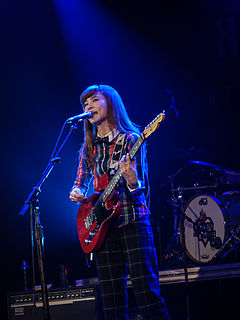 W
WRina Suzuki , better known for both with her full name or by her stage name RINA, is a Japanese musician, singer and songwriter. She is the drummer and vocalist of the Japanese rock band Scandal. Suzuki is also part of a supergroup called Halloween Junky Orchestra led by established musicians such as Hyde and K.A.Z of Vamps for their October 2012 hit single Halloween Party.
 W
WStomu Takeishi is a Japanese jazz bass player. He generally plays fretless five-string electric bass guitar, as well as a Klein five-string acoustic bass guitar. He often uses looping or other electronic techniques to enhance the sound of his instrument.
 W
WMasanori Taki , better known by his stage name Pierre Taki , is the front man for Japanese synthpop group Denki Groove, which consists of himself and Takkyu Ishino. As of 2001 he was involved in an exhibit called Prince Tongha with Hideyuki Tanaka in New York City. He also frequently appears as an actor in film and on television.
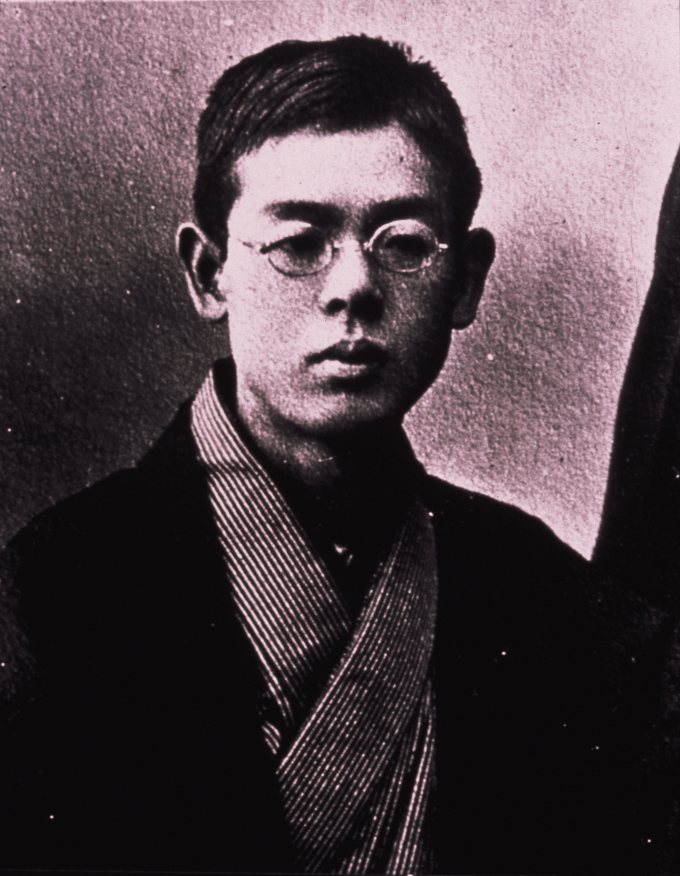 W
WRentarō Taki was a Japanese pianist and composer of the Meiji era.
 W
WChoichi Terukina is a well-known Ryukyuan classical musician and sanshin grandmaster.
 W
WTōchūken Kumoemon was a popular rōkyoku recitalist in Meiji Japan. His immense popularity helped rōkyoku break into the mainstream. At his height, he performed Chūshingura productions to sell-out crowds at some of the biggest theatres in Tokyo and Osaka. These performances also roused nationalist sentiment during Russo-Japanese War.
 W
WShintarō Tokita is a member of the J-pop band, Sukima Switch. He was born February 25, 1978 in Midori-ku, Nagoya, Aichi Prefecture Japan. He has also produced Chitose Hajime's comeback single "Kataritsugu Koto", ending theme to Blood+. He enjoys soccer, judo and skiing. He especially loves music. He is usually identified with his large afro and wispy goatee.
 W
WDaisuke Tsuda , also known as Daisuke-han (ダイスケはん), is the harsh vocalist of the Japanese band Maximum the Hormone, while fellow band member Ryo Kawakita does most of the clean voices. He was born in Takamatsu, Kagawa.
 W
WKazuhisa Uchihashi is a Japanese guitarist involved in free improvisation music. Born in 1959 in Osaka, Uchihashi began to play the guitar at age 12, playing in various rock bands, though he later studied jazz music. In 1988 he joined the band the First Edition, and in 1990 formed the band Altered States. He was also a member of Otomo Yoshihide's Ground Zero from 1994 to 1997. Uchihashi also plays daxophone, and in addition to his role as a free improviser, Uchihashi has been the musical director for Osaka theatre group Ishinha, has held improvisation workshops in various cities in Japan, as well as London, Oslo, and currently in Vienna also. Uchihashi has set up his own record label, Innocent Records a.k.a. Zenbei Records, had held a music festival annually since 1996 Festival BEYOND INNOCENCE.
 W
W{{Infobox musical artist | image = File:Ka-Na BBG New York April 2019.jpg | name = Kana Uemura | native_name = {{|植村 花菜}} | native_name_lang = ja | birth_name = | alias = | birth_date = 4 January 1983 | death_date = | origin = Kawanishi, Hyōgo, Japan | instrument = Vocals, guitar | genre = Pop, folk | occupation = Singer-songwriter | years_active = 2004–present | label = Bellwood (2004)King Records (2005–present) | associated_acts = Depapepe, Janis Ian, Kakashi, Takuya Ōhashi, Kotaro Oshio, Spitz, Sandi Thom, Toku, Junko Yamamoto | website = www.clearsky.co.jp/kana }}
 W
WPaul Weingarten, Ph.D. was a Moravia-born pianist and music teacher.
 W
WTakahiro Yamada is the bass player and backing vocalist of the Japanese rock band Asian Kung-Fu Generation. Yamada met fellow band members Masafumi Gotoh and Kensuke Kita while attending a music club of Kanto Gakuin University. The three formed Asian Kung-Fu Generation in 1996, with drummer Kiyoshi Ijichi joining the band shortly after.
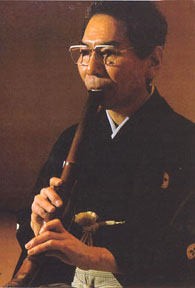 W
WGorō Yamaguchi was a Japanese shakuhachi player who worked in both solo and ensemble performances. He was noted for his influential recordings of Traditional Japanese music and one of his pieces was selected by NASA to be included on the Voyager Golden Record and launched into space.
 W
WSusumu Yokota was a Japanese composer. He released several albums under pseudonyms including Stevia, Ebi, and others.
 W
WTatsuya Yoshida is a Japanese musician; drummer and composer who is the only consistent member of the renowned progressive rock duo Ruins, as well as of Koenji Hyakkei. He is also a member of the progressive rock trios Korekyojinn and Daimonji. Outside his own groups, Yoshida is renowned for his tenure as drummer in the indie progressive group YBO2, a band also featuring guitarist KK Null, whom he also joins in the current line-up of Zeni Geva and he has played drums in a late edition of Samla Mammas Manna. He has been cited as "[the] indisputable master drummer of the Japanese underground".
 W
WJoji Yuasa is a Japanese composer of contemporary classical music.